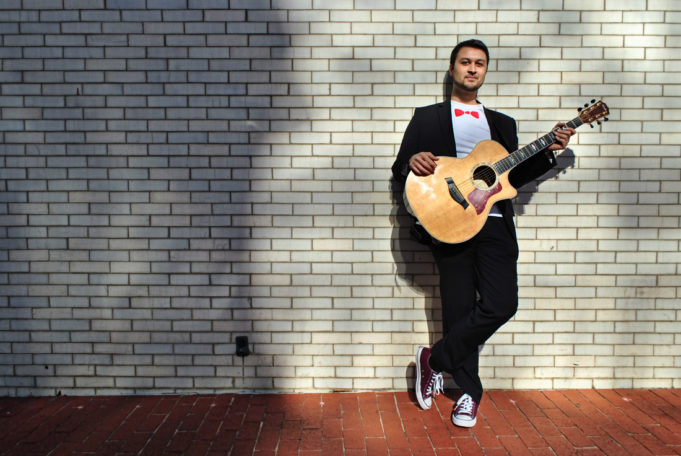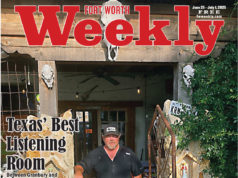Court Hoang was a couple of weeks into the pandemic lockdown and feeling disconnected. Hunkering down wasn’t the problem. The software developer works from his Fort Worth home and is happy there. Spending time with his wife, Whitney Hoang, and two children –– ages 1 and 3 –– is a joy, he said.
Still, the nagging feeling of disengagement wouldn’t fade.
“It was this pressure I was feeling, especially with my kids, to put on a smile and to reassure them all the time that everything was OK and there is nothing to be afraid of,” he said. “You want to be honest with your kids, but you don’t want to put things on them that are too big for them.”
Then he had an idea. The part-time indie folk-rock artist decided to livestream a songwriting session. He would start from scratch –– no chords, lyrics, or melody –– and write in real time in front of online viewers.
“One of the best ways to connect with people is to share the vulnerability, and what is more vulnerable than trying to write a song in front of people?” he said. “I’d start with nothing and go through the songwriting process that I usually go through and just see what comes out.”
An hour into the livestream, he had written a verse and chorus for a song called “Will I Wake Up?” Nothing was polished, but Hoang liked what he’d come up with on the spot, and he enjoyed exposing his writing methods to viewers.
“I was talking through my process as I was doing it –– this is how I’m choosing the chords, this is how I’m writing the melody,” he said. “Once I had the melody, I started playing around with words. Just talking it all out. It was a very strange experience. Usually I don’t even let my wife and kids hear a song until I at least have a finished draft. The folks who stuck around enjoyed it.”
He completed the song over the next few days.
“Then I thought, What am I going to do with it?” he said.
Hoang recorded the basic guitar and vocal tracks in his garage, which he has converted into a recording studio. He liked the song and envisioned a big production with additional vocals, mandolin, cello, violin, piano, guitar, bass, and drums. He thought of 10 musician friends –– most local but a few spread out across the country –– and sent the basic tracks to them and asked them to add their own parts.
“I tried not to give anyone specific instructions about what I wanted,” he recalled. “I said, ‘Listen to the song and allow that to influence what you do.’ These are all musicians that I’ve worked with in the past or seen their work, and I trust them.”
All of the musicians agreed and recorded their parts using a variety of methods, including studio gear, laptops, USB mics, or iPhones. They mailed their parts back to Hoang to add to the master recording.
“No one really knew what anyone else was doing,” Hoang said. “Then I did a little bit of chopping up and cutting and pasting –– but very little.”
The musicians, aware of the large number of people involved, played sparingly but purposefully. After the mix-down, the finished product steeped in orchestral folk, rock, and pop sounded rich and warm. Musicians who contributed include Casey Davis-Van Atta (mandolin), Joseph Fisher-Schramm (upright bass), Brian Garcia (drums), Luke Lindemann (piano), Blake Montgomery (electric guitar), Caleb Schramm (hand percussion), Veronica Schramm (violin), Taylor Teachout (vocals), James West (vocals), and Bess Whitby (cello).
Hoang was so pleased he produced a video using license-free stock footage and spent dozens of hours creating a timely storyline that depicts different ways in which people are navigating the crisis.
The song debuted on Friday, May 22, on The KXT Local Show hosted by Amy Miller and online at KXT.org and is available at CourtHoang.com. Proceeds from sales will be donated to the North Texas Food Bank.
“I am supremely happy with how it turned out, especially given the constraints we were under,” Hoang said.












